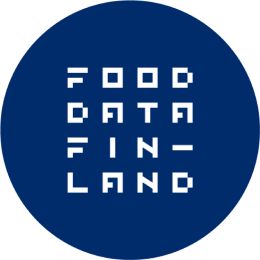Questions and answers about supply chain data standards
What are standards and what is their benefit in the development of data management?
Supply chain data standards create a common business language between operators, whether it is for example logistics, responsibility or traceability. They make the data structurally consistent, so that it can be collected and shared between different actors efficiently. In addition, the contents of the data are mutually comparable and can be put together, thanks to which the information collected from the supply chain can be utilized and further enriched.
With the help of standards, the efficiency of the supply chain improves, traceability becomes easier and consumers, customers and authorities can be provided with information more easily, if so desired. This makes the work of both the individual operator and the entire chain easier.
Why should we develop food chain data management together?
Each operator decides on the content of their own data, but the structure of the data should be consistent, and that requires the cooperation of the entire chain. Among other things, future EU requirements aim to develop data sharing, and information should be able to be communicated effectively within the company, between operators, to authorities and consumers. Reporting requirements are increasing throughout the chain, and if each company or even its internal function determines its own ways to verify or describe things, the flow of information stops, or the information is not comparable. Unnecessary costs arise in the food chain when each actor develops his own way of responding to the information requirements of the operating environment.
When we work together, the data becomes structurally compatible and easily moveable with the help of a common language. In addition, by working together, we all have the opportunity to influence the process of information transfer and the determination of refined product information.
What does it mean that standards are the language of business?
The standards provide a common business language and grammar between operators, i.e. specifications of what and in what form information should be, so that it can be efficiently moved between operators. However, the standards do not take a position on what is said in their language, i.e. what information is possibly wanted to be conveyed.
Is the use of supply chain data standards mandatory for operators?
To use language for data that is according to standards is voluntary for operators. But when using the language, one must commit to its jointly defined rules. Only then does the language work, that is, it is understandable between different actors.
The consistent language of standards is is more effective the more it is used. Therefore, the widest possible use of standards is recommended.
Will I lose ownership of the data if I use supply chain data standards?
Supply chain standards promote the possibilities of data sharing, but they do not themselves share data. Even if your data complies with the standards, you choose how and to whom you share it, or whether you share it at all.
It is also worth noting that the use of open standards does not bind you to the use of a specific technology or application. Instead, you can require that your current or future system supplier utilize open standards for supply chain data. This also enables you to freely choose system supplier's in the future.
